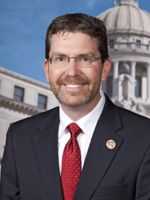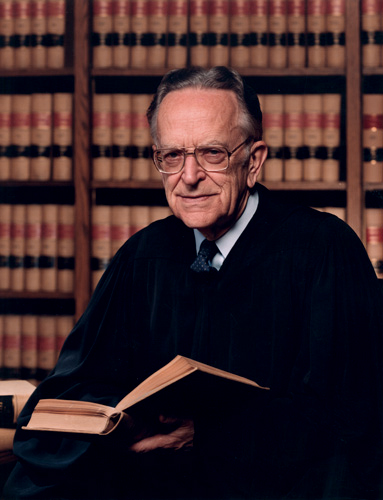Mississippi Lawmaker Files Bill to Criminalize Abortion in State

JACKSON, Miss. — A Republican lawmaker and former pastor has filed a bill that would make abortion illegal in the state of Mississippi.
“Any person, willfully and knowingly causing, by means of any instrument, medicine, drug or other means whatever, any woman pregnant with child to abort or miscarry, or attempts to procure or produce an abortion or miscarriage shall be guilty of a felony,” reads House Bill 338, filed by Rep. Dan Eubanks, R-DeSoto.
“Anyone who purposefully, knowingly or recklessly performs or attempts to perform or induce an abortion shall be guilty of murder and punished as provided by law for such crime,” it declares.
The bill amends existing language in state law that allowed for physicians to perform abortions. The legislation additionally makes it unlawful for anyone to sell pills to a woman for the purpose of ending the life of her unborn child.
“It shall be unlawful to knowingly give, sell, dispense, administer or otherwise provide or prescribe any abortion-inducing drug to a pregnant woman for the purpose of inducing an abortion in that pregnant woman, or enabling another person to induce an abortion in a pregnant woman,” Eubanks’ revision simply reads.
Current law only criminalizes those who are not licensed doctors, adding the provision to the above statement, “unless the person who gives, sells, dispenses, administers or otherwise provides or prescribes the abortion-inducing drug is a physician, and the provision or prescription of the abortion inducing drug satisfies the standard of care.” Eubanks’ proposal nixes that portion from the state statute.
Those who illegally commit abortions could face up to 10 years in prison and be fined a minimum of $25,000.

According to Eubanks’ biography, the lawmaker is a graduate of Mid-America Baptist Theological Seminary in Memphis, Tennessee, and served as pastor of Advent Presbyterian Church in Cordova, Tennessee from 2005 to 2016. He also holds business degrees, studying internationally in Austria and Mexico. He remains active in his church as he leads the local outreach efforts.
As previously reported, there remains one abortion facility in the state of Mississippi: Jackson Women’s Health Organization in the state capital. It offers abortions up to 16 weeks, or four months, gestation.
Owner Diane Derzis has claimed that she believes God wants her to run the abortion facility. She was featured on ABC’s “Nightline” in 2013 as she claimed to reporters that God was on her side in the abortion business.
“I know as fervently as they do that what I’m doing is moral and right,” she stated. “But if I’m wrong, that’s between the Lord and I.”
Abortionist Willie Parker, a former Baptist minister, has performed abortions at the facility for a number of years.
“The Bible tells us to love our neighbors with all our strength,” Parker told the Austin Chronicle in 2015. “Neighbors also mean struggling women who are going through times that are very complicated for them.”
Planned Parenthood Southeast Advocates expressed opposition to Eubanks’ legislation on Wednesday, although it does not perform abortions in Mississippi.
The bill has been referred to the Judiciary B committee for consideration. Read the legislation in full here.
As previously reported, similar bills to outlaw abortion were filed this month in Oklahoma, Indiana, and North Dakota, with the latter including a life of the mother exception.
ROE V. WADE

January 22 marks the 48th year since the U.S. Supreme Court issued its decision in Roe v. Wade, a ruling that has resulted in the deaths of more than 60 million unborn children and counting.
Roe was based on a false claim of rape and sought to challenge a Texas law that only allowed abortion when the life of the mother was at stake.
Out of the seven Supreme Court justices that ruled in favor of Roe in 1973, five were Republican-appointed. The court discussed the reasons why abortion has historically been outlawed in the nation, including the binding vow of the Hippocratic Oath and the influence of Christian ethics. It also noted that in pagan nations such as Greece and Rome, “[a]ncient religion did not bar abortion.”
Judge Harry Blackmun, nominated by Richard Nixon, wrote the majority opinion. Blackmun stated that the Constitution does not include the unborn as being persons, and therefore, they may not receive equal protection.
“The Constitution does not define ‘person’ in so many words,” he wrote. “[I]n nearly all these instances [where it is cited], the use of the word is such that it has application only post-natally. None indicates, with any assurance, that it has any possible pre-natal application.”
The court’s comments about the “viability” of the child — when the infant could live apart from his or her mother outside of the womb — also influenced future rulings that have allowed abortion to continue.
“Physicians and their scientific colleagues have regarded [the concept of ‘quickening’] with less interest and have tended to focus either upon conception, upon live birth, or upon the interim point at which the fetus becomes ‘viable,’ … albeit with artificial aid,” Blackmun wrote. “Viability is usually placed at about seven months (28 weeks) but may occur earlier, even at 24 weeks.”
However, some believe that the Supreme Court’s logic was faulty and contend that gestational age does not make the child less human or unworthy of life. The film “Come What May,” produced by Patrick Henry College students, centers on this argument.
“They tear the baby out of its only means of life support, and say, ‘Wow, look at that; our machines can’t sustain it’s life,’ and somehow, that proves it’s not viable?” Caleb Hogan, played by Austin Kearney, declares in the production.

Christians have long opposed abortion as murder, seeing the taking of human life — no matter what his or her age, size or location (whether inside or outside the womb) — as playing God in essentially considering it a “right” for mothers to dictate which one of her children lives or dies.
Ecclesiastes 11:5 states, “As thou knowest not what is the way of the spirit, nor how the bones do grow in the womb of her that is with child, even so thou knowest not the works of God who maketh all.”
Psalm 139:13-16 outlines, “For thou hast possessed my reins; Thou hast covered me in my mother’s womb. I will praise thee, for I am fearfully and wonderfully made. Marvelous are thy works, and that my soul knoweth right well.”
“My substance was not hid from Thee when I was made in secret and curiously wrought in the lowest parts of the earth. Thine eyes did see my substance, yet being unperfect, and in Thy book all my members were written, which in continuance were fashioned, when as yet there was none of them.”
Scripture, in addition to speaking on the value of the unborn, also repeatedly addresses the precursor sin of fornication, teaching in 1 Corinthians 6:13, “Now the body is not for fornication, but for the Lord, and the Lord for the body.”
1 Thessalonians 4:3-5 exhorts, “For this is the will of God, even your sanctification, that ye should abstain from fornication, that every one of you should know how to possess his vessel in sanctification and honor — not in the lust of concupiscence, even as the Gentiles which know not God.”
Verses 7-8 add, “For God hath not called us unto uncleanness but unto holiness. He therefore that despiseth, despiseth not man but God, who hath also given unto us His Holy Spirit.”
Please visit Christian News Network’s Outlaw Abortion page to help us work to abolish the worldwide holocaust.
Become a Christian News Network Supporter…







Comments are closed.